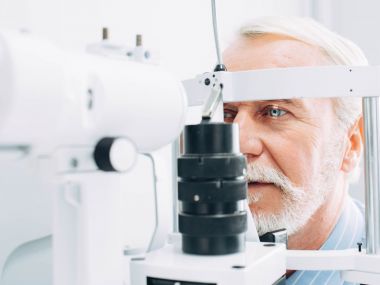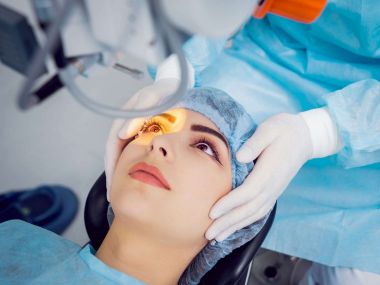Ophthalmology - Further information
Numerous examination techniques and tests are common in ophthalmology. For example, there are examinations with the slit lamp, in which the eye is viewed stereoscopically, or ophthalmoscopy, in which the rear sections of the eye are viewed by reflection. If there is suspicion there could be foreign bodies under the eyelids, ectroprionisation - the turning of the upper eyelid - is considered. Ophthalmologists have at their disposal the most filigree and highly developed tools.
Besides foreign bodies, burns are among the most common injuries of the eye area. Among the diseases that occur frequently is diabetic retinopathy, i.e. retinal damage caused by diabetes. Corrections of defective vision and the treatment of glaucoma are also among the routine procedures of ophthalmologists, as are corneal transplants and malignant melanomas.
Ophthalmology is also one of the sub-disciplines of surgery. The most common surgery performed worldwide is performed by an ophthalmologist: it is cataract surgery.






